Subtotal: £47.41
6X100G Daphnia Blister – Flash-Frozen Daphnia pulex Cubes, Delicious Frozen Food for Enhancing Health and Growth of Your Cherished Aquarium Companions
£14.49 Original price was: £14.49.£12.00Current price is: £12.00.
Welcome these beautiful creatures into your aquarium with our 6X100G Daphnia Blister. These flash-frozen Daphnia pulex cubes are packed with protein, enhancing the health and grace of your peaceful companions. Perfect for aquarists seeking vibrant aquatic life.
Nutritional Overview
Nutritional Analysis – 6X100G Daphnia Blister
| Nutrient | Content | Benefit |
|---|---|---|
| Protein | High Quality | Growth & muscle development |
| Vitamins | Enriched Formula | Immune system support |
| Color Enhancers | Natural Carotenoids | Vibrant coloration |
| Probiotics | Digestive Support | Healthy gut flora |
✓ Nutritional Benefits
Daphnia is known for its high protein content, essential fatty acids, and vitamins, making it a perfect addition to any fish diet.
The 6X100G Daphnia Blister is a high-quality frozen food option specifically designed to enhance the health and growth of your cherished aquarium companions. Daphnia pulex, commonly known as water fleas, are a rich source of protein and essential nutrients, making them an ideal food choice for a variety of aquarium fish and invertebrates. This frozen food is flash-frozen to preserve its nutritional value, ensuring that your aquatic friends receive the best possible diet. Each cube contains a balanced mix of proteins, fats, and vitamins that promote optimal growth, vibrant coloration, and overall well-being. The high protein content in daphnia is particularly beneficial for growing fry and other young fish, providing the necessary energy and nutrients for their development.
✓ Feeding Specifications
Feeding your aquatic companions with the 6X100G Daphnia Blister is simple and effective. The recommended portion size depends on the size and species of your fish. Generally, it is advisable to feed small amounts that can be consumed within a few minutes to prevent overfeeding and maintain water quality. For smaller fish and fry, one cube may suffice, while larger fish may require two or more cubes. It is essential to observe your fish during feeding to ensure they are consuming the daphnia and adjust the portion sizes accordingly. A feeding schedule of 2-3 times per week is recommended for adult fish, while younger fish may benefit from daily feedings to support their rapid growth.
⚠ Important Feeding Note
Always ensure that the daphnia is fully thawed before feeding to your fish to prevent digestive issues.
Suitable Fish Species
The versatility of daphnia makes it suitable for a wide range of fish species. This includes popular aquarium fish such as bettas, guppies, tetras, and cichlids, as well as invertebrates like shrimp and snails. Daphnia is particularly beneficial for fry, providing them with the necessary nutrients for healthy growth and development. In community tanks, daphnia can serve as a nutritious treat that encourages natural hunting behaviors in carnivorous and omnivorous fish. When introducing daphnia into your fish’s diet, it is essential to consider their size and feeding habits to ensure compatibility and acceptance.
✓ Target Species
Ideal for bettas, guppies, tetras, cichlids, and shrimp.
Nutritional Benefits
The nutritional profile of daphnia provides numerous health benefits for your aquatic companions. The high protein content supports muscle development and growth, while essential fatty acids contribute to vibrant coloration and overall vitality. Additionally, daphnia is rich in fiber, which aids in digestion and promotes a healthy gut. Regular feeding of daphnia can enhance the immune system of fish, making them more resilient to diseases and stress. Moreover, the natural movement of daphnia in the water stimulates the hunting instincts of fish, encouraging natural behaviors that contribute to their well-being.
⚠ Health Benefits
Supports immune system health, promotes vibrant coloration, and aids in digestion.
Feeding Instructions
When feeding daphnia, it is important to follow a few key instructions to ensure the health of your fish. First, always thaw the daphnia cubes in a small container of tank water before introducing them to the aquarium. This helps to maintain water temperature and quality. Next, distribute the daphnia evenly across the tank to allow all fish access to the food. Observe your fish during feeding to gauge their appetite and adjust the portion sizes as needed. It is also beneficial to vary the diet by incorporating other high-protein foods alongside daphnia to provide a balanced nutritional intake.
Storage Guidelines
Proper storage of your frozen daphnia is crucial for maintaining its quality and nutritional value. Keep the daphnia in the freezer at a consistent temperature of -18°C (0°F) or lower. Avoid repeated thawing and refreezing, as this can degrade the quality and nutrient content of the food. It is advisable to store the daphnia in its original packaging or a sealed container to prevent freezer burn and contamination. Always check the expiration date and use the daphnia within the recommended time frame for optimal freshness and quality.
✓ Storage Tips
Store in the freezer at -18°C or lower, avoid thawing and refreezing.
Ingredient Analysis
The primary ingredient in the 6X100G Daphnia Blister is Daphnia pulex, sourced from clean, natural waters to ensure high quality and purity. The daphnia are harvested at peak nutritional value and immediately flash-frozen to lock in their freshness. This method of processing preserves the natural flavors and nutrients, providing an excellent food source for your aquatic friends. The absence of artificial additives or preservatives makes this product a safe and healthy choice for your aquarium. Additionally, the daphnia are free from harmful contaminants, ensuring a safe feeding experience for your fish.
Feeding Schedule
A well-structured feeding schedule is essential for the health of your fish. For adult fish, it is recommended to feed daphnia 2-3 times per week, allowing for a varied diet that includes other high-protein foods. Young fry can be fed daily, as they require more frequent feedings to support their rapid growth. It’s important to monitor your fish’s eating habits and adjust the feeding frequency and portion sizes as necessary. Keeping a consistent feeding schedule will help maintain optimal health and growth in your aquarium.
⚠ Feeding Frequency
Adults: 2-3 times per week; Fry: Daily feedings.
Health Benefits
Incorporating daphnia into your fish’s diet can lead to numerous health benefits. The high protein content aids in muscle development and growth, while essential fatty acids support healthy skin and vibrant coloration. Regular consumption of daphnia can enhance the immune system, making fish more resilient to diseases and stress. Additionally, the natural movement of daphnia in the water encourages hunting behaviors, which can reduce stress and promote overall well-being. By providing a varied diet that includes daphnia, you are contributing to the long-term health and vitality of your aquatic companions.
✓ Health Improvements
Supports muscle development, enhances immune system, promotes vibrant coloration.
Supplement Integration
Daphnia can be an excellent supplement to your fish’s diet when combined with other high-quality foods. For optimal nutrition, consider alternating daphnia feedings with other protein-rich options such as brine shrimp, bloodworms, or high-quality flakes and pellets. This will ensure a balanced diet that meets all the nutritional needs of your fish. Additionally, providing a variety of food types can help stimulate natural foraging behaviors and prevent boredom in your aquatic companions. Always remember to adjust portion sizes when introducing new foods to maintain water quality and prevent overfeeding.
Water Quality Impact
Feeding daphnia can have a positive impact on water quality when done correctly. The natural composition of daphnia helps reduce waste in the tank, as fish tend to consume it quickly and efficiently. However, it is crucial to monitor water parameters regularly, especially after feedings, to ensure that excess food does not decompose and contribute to poor water quality. Performing regular water changes and maintaining appropriate filtration will further enhance the overall health of your aquarium. By being mindful of feeding practices and water quality management, you can create a thriving environment for your fish friends.
⚠ Water Quality Monitoring
Regularly check water parameters to prevent overfeeding and maintain quality.
Special Dietary Needs
Certain fish species and life stages may have specific dietary needs that daphnia can help fulfill. For example, breeding fish and growing fry require higher protein diets to support their reproductive and developmental processes. Daphnia is an excellent food choice for these situations, as it provides the necessary nutrients for successful breeding and fry growth. Additionally, fish recovering from illness or stress may benefit from the nutritious profile of daphnia, as it can help restore their strength and vitality. Always consult with an aquarium professional or veterinarian if you have concerns about your fish’s dietary requirements.
Feeding Techniques
To encourage natural feeding behaviors, consider using feeding techniques that stimulate your fish’s hunting instincts. For example, you can use a feeding ring or a mesh feeding net to distribute daphnia in a controlled manner. This allows fish to chase and hunt for their food, mimicking their natural foraging behaviors. Additionally, you can incorporate daphnia into a feeding routine that includes a variety of food types to keep your fish engaged and interested in their meals. Experimenting with different feeding techniques can enhance the overall feeding experience for your aquatic companions.
Quality Assurance
The 6X100G Daphnia Blister undergoes strict quality assurance processes to ensure that you are providing the best possible food for your fish. Each batch is tested for nutritional content and purity, ensuring that it meets the highest standards for aquatic nutrition. The absence of harmful additives and preservatives guarantees a safe feeding experience for your fish friends. By choosing this product, you are making a responsible choice for the health and well-being of your aquatic companions.
✓ Quality Assurance
Each batch is tested for nutritional content and purity, ensuring high standards.
Comparison Guide
When considering various food options for your aquarium, it’s essential to understand how daphnia compares to other types of fish food. Unlike dry flakes or pellets, daphnia provides a live-food experience that closely mimics the natural diet of many fish species. This can lead to increased feeding response and overall health benefits. Additionally, daphnia’s high protein content sets it apart from many other commercially available fish foods, making it an excellent choice for promoting growth and vitality in your aquatic companions. By incorporating daphnia into your feeding regimen, you can provide a diverse and nutritious diet that supports the well-being of your fish.
Expert Recommendations
Aquarium professionals and experienced hobbyists often recommend incorporating daphnia into the diet of both freshwater and saltwater fish. The nutritional benefits and natural movement of daphnia can enhance the overall feeding experience for your fish friends. It is advisable to observe your fish’s behavior and adjust feeding practices accordingly to ensure they are thriving. Additionally, consider consulting with an aquarium expert or veterinarian for tailored dietary recommendations based on the specific needs of your fish species. By following expert advice, you can create a healthy and balanced diet for your aquatic companions.
Nutritional Science
Research into the nutritional value of daphnia has shown that it is an exceptional food source for many fish species. Studies indicate that the high protein content and essential fatty acids found in daphnia contribute to improved growth rates and overall health in fish. Additionally, the natural movement of daphnia in the water stimulates hunting behaviors, which can enhance the well-being of your aquatic companions. By understanding the science behind daphnia nutrition, you can make informed decisions about the best feeding practices for your aquarium.
Optimal Feeding Schedule
8:00 AM
Main portion of daily nutrition
6:00 PM
Smaller portion to maintain energy
Feeding Tips
- Feed only what fish can consume in 2-3 minutes
- Remove uneaten food to maintain water quality
- Adjust quantity based on fish activity and temperature
- Fast fish one day per week for digestive health
Frequently Asked Questions
Q: How much Daphnia should I feed my fish?
Feeding quantities of Daphnia can vary based on the size and species of your fish. A general guideline is to offer an amount they can consume within 2-3 minutes. This helps prevent overfeeding and maintains water quality. For smaller fish, a couple of cubes may suffice, while larger species might require more. Observing your fish during feeding will help you adjust the quantity accordingly. It is also beneficial to vary their diet, incorporating other high-quality foods to ensure they receive a balanced nutrition. Always ensure the food is thawed before feeding to make it easier for your fish to consume.
✓ Expert Tip
Consider feeding Daphnia in small portions multiple times a day rather than one large feeding to promote healthy digestion.
Q: How should I properly store Daphnia?
To maintain the quality of your Daphnia, it is crucial to store it correctly. Keep the blister packs in the freezer at a consistent temperature of -18°C. Avoid repeatedly thawing and refreezing the cubes, as this can degrade the nutritional value. Only thaw the amount you intend to use for feeding. Once thawed, any uneaten food should be discarded, as it can spoil quickly and affect water quality. Proper storage ensures that your fish receive the best possible nutrition from this food source.
✓ Expert Tip
Label your freezer with the date of purchase to keep track of freshness and ensure optimal feeding.
Q: Which fish species can consume Daphnia?
Daphnia is an excellent food source suitable for many freshwater fish species. Small to medium-sized fish, such as Tetras, Guppies, and Rasboras, thrive on Daphnia due to its size and nutritional profile. Larger species, such as Cichlids and certain types of Catfish, can also benefit from Daphnia as part of a varied diet. It is advisable to assess the size of the Daphnia in relation to your fish to ensure they can consume it easily. Always introduce new foods gradually to your fish’s diet to prevent digestive issues.
✓ Expert Tip
Observe your fish’s response to Daphnia; if they show keen interest, it’s a great sign that they appreciate this nutritious treat.
Q: Will Daphnia affect my water quality?
Yes, Daphnia can impact water quality if not managed properly. Overfeeding can lead to uneaten food decomposing in the tank, which in turn can increase ammonia levels and lead to poor water quality. It is essential to monitor your fish’s feeding habits and adjust the quantity accordingly. Regular tank maintenance, including water changes and filtration, will help mitigate any negative impacts. Additionally, Daphnia is known for its ability to help filter water in natural habitats, so it can contribute positively if balanced with proper care.
✓ Expert Tip
Consider pairing Daphnia feedings with regular water quality tests to ensure a healthy environment for your aquatic companions.
Q: How does Daphnia support fish health and growth?
Daphnia is rich in essential nutrients, including proteins, vitamins, and omega-3 fatty acids, which are crucial for the overall health and growth of your fish friends. The high protein content aids in muscle development, while the fatty acids support optimal organ function and energy levels. Additionally, Daphnia acts as a natural digestive aid, promoting gut health. Regular incorporation of Daphnia into your fish’s diet can enhance colouration and vitality, making them more vibrant and robust.
✓ Expert Tip
Rotate Daphnia with other high-quality foods to ensure a balanced diet that meets all nutritional needs.
Q: Can I mix Daphnia with other food types?
Absolutely! Mixing Daphnia with other food types can provide a well-rounded diet for your fish. Consider combining Daphnia with high-quality flakes, pellets, or other frozen foods to enhance nutritional variety. This not only keeps your fish interested in their meals but also ensures they receive a comprehensive array of nutrients. When mixing foods, be mindful of the total quantity to avoid overfeeding, and observe your fish’s preferences to tailor their diet accordingly.
✓ Expert Tip
Experiment with different food combinations to find the perfect blend that your aquatic companions enjoy!


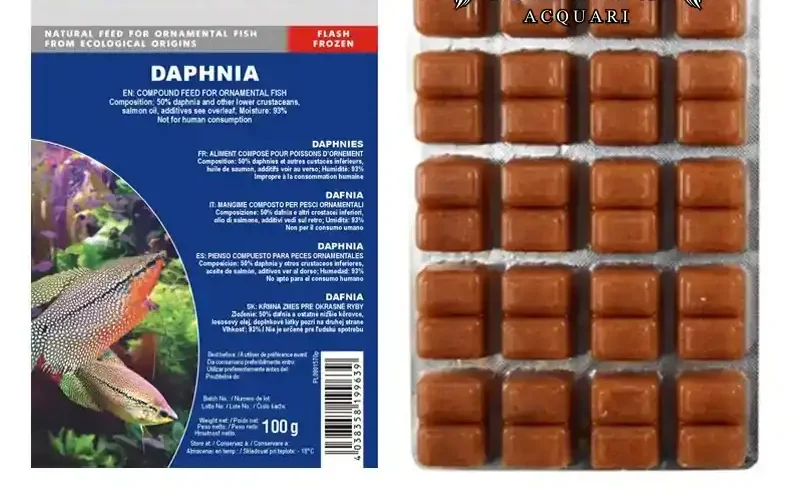

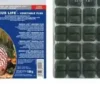
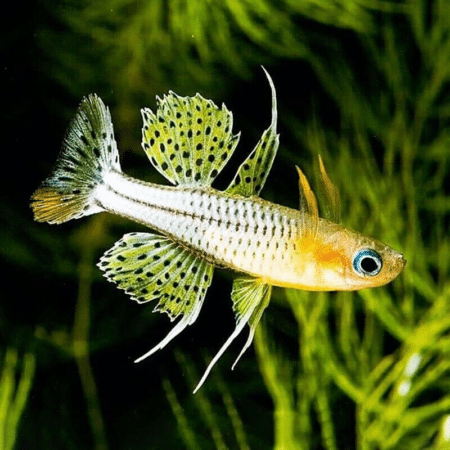
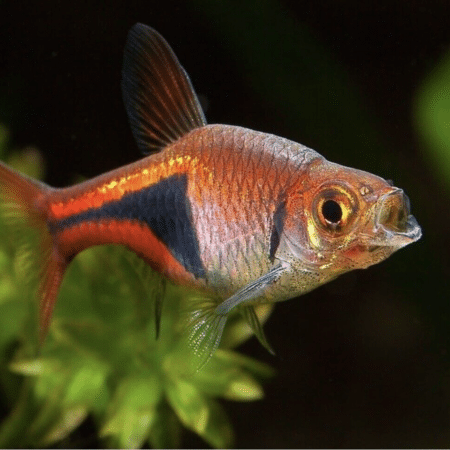



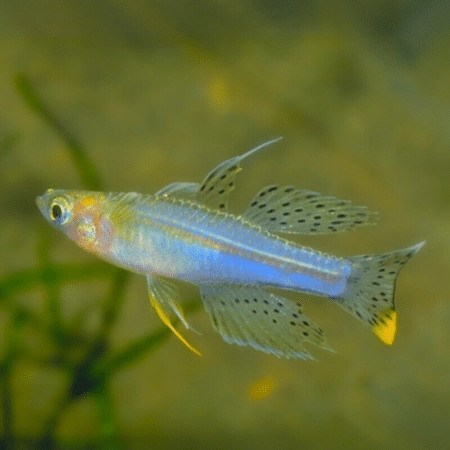



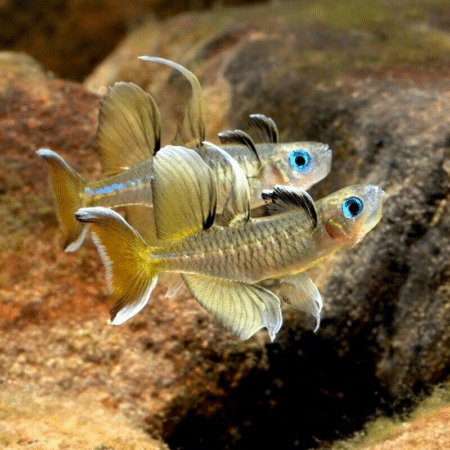

Emily Parker (verified owner) –
As a passionate aquarium hobbyist, I’ve always been on the lookout for quality frozen food options for my community tank. After trying the 6X100G Daphnia Blister – Flash-Frozen Daphnia pulex Cubes, I can genuinely say this is a game changer! My shrimp and various freshwater fish absolutely adore these little cubes. I’ve been using them for about two weeks now, and I’ve noticed a significant boost in the activity levels of my fish. They eagerly swarm around during feeding time, and I love seeing them so engaged and healthy. Compared to other frozen foods I’ve tried, these Daphnia cubes are much cleaner and have less waste. For anyone looking to enhance their aquarium’s diet, especially if you have small to medium-sized fish, I highly recommend these! The only minor downside is that they tend to thaw quickly, so be prepared to use them promptly. Overall, I’m thrilled with this product and can’t wait to keep my fish happy and thriving with these nutritious frozen treats!
Emily Carter (verified owner) –
As a passionate fish parent, I’m always on the lookout for top-notch food for my aquatic friends. The 6X100G Daphnia Blister cubes have been a game changer for my tank! After just a week of incorporating these frozen daphnia pulex cubes into their diet, I noticed my fish becoming livelier, and their colors are more vibrant than ever.
These cubes are super easy to use; I just pop one out, thaw it in a little tank water, and watch my fish go wild for them! The size is perfect too—small enough for my tiny tetras but substantial enough for my larger cichlids to enjoy.
Compared to other frozen foods I’ve tried, the quality of these daphnia is outstanding. They are nutrient-rich and my fish seem to thrive on them, which makes me feel great as a caretaker. Shipping was prompt, and the packaging keeps everything fresh.
The only minor downside is that some of the cubes can break apart during shipping, but it’s not a deal-breaker for me. I highly recommend these to anyone with a mixed community tank or smaller fish. Your pets will thank you!